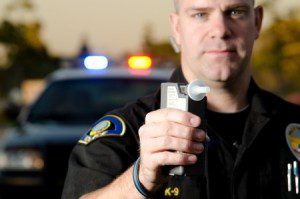 The New Jersey Supreme Court continued: The two Draeger-manufactured probes fail to meet the NIST’s standards and the measure of uncertainty in their temperature readings is unknown. The Court does not accept the State’s contention that the risk of miscalibration is infinitesimal due to the numerous other fail-safes in the calibration procedure. As Dr. Brettell testified, it was that very fear of a laboratory bias that led him to include the NIST traceable thermometer in the calibration procedure.
The New Jersey Supreme Court continued: The two Draeger-manufactured probes fail to meet the NIST’s standards and the measure of uncertainty in their temperature readings is unknown. The Court does not accept the State’s contention that the risk of miscalibration is infinitesimal due to the numerous other fail-safes in the calibration procedure. As Dr. Brettell testified, it was that very fear of a laboratory bias that led him to include the NIST traceable thermometer in the calibration procedure.
The Court orders the State to notify all affected defendants of its decision that breath test results produced by Alcotest machines not calibrated using a NIST-traceable thermometer are inadmissible and commends to the State that it requires the manual recording of the NIST traceable readings going forward. Further, the Court lifts the stay on all pending cases so that deliberations may commence on whether and how those cases should proceed. For those cases already decided, affected defendants may now seek appropriate relief. Because the State waited approximately a year to notify the affected defendants, the Court relaxes the five-year time bar, R. 7:10-2(b)(2), in the interests of justice. The Court asks the Director of the Administrative Office of the Courts to monitor these cases and recommend how best to administer them in the event any special measures are needed. Finally, as to defendant Cassidy, the Court exercises its original jurisdiction and vacates her conviction.
The response from municipal prosecutors will vary in the wake of this case. The inadmissibility of Alcotest results does not mean that the State can not prove a DUI case beyond a reasonable doubt since they can still get convictions via “observation cases”. That is to say, they can still prove their case through police testimony regarding defendants’ performance during roadside testing, admissions to drinking, the smell of alcohol on their breath, etc. Some prosecutors may choose to dismiss all affected DUI convictions. Others may choose to prosecute cases via observation testimony.
